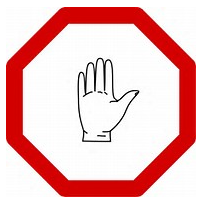High Quality Questions
The ability to ask high quality questions is one of the 3 core skills when coaching.
There are 2 types of high quality questions (HQQ):
- Type 1: Focus the Mind - These questions aim to focus the mind and help people determine exactly what they will do. They involve words such as "will", "need", "are" and are questions such as "what will you do to move forward?"
- Type 2: Engage the Imagination - These questions aim to open up peoples thinking to look at all the possibilities and involve words such as "possibly" "could" "maybe and are questions such as "what could you possibly do to move forward?"

By using these questions in conjunction with each other during a coaching session you can achieve the best outcome.
When we are asking questions to team members they should:
- Get them to think, to engage the imagination or focus the mind
- Encourages the person to focus on specific detail, For example, asking the question "what exactly did you do?" encourages the person to focus in more depth on what he/she did.
- Moves a person down a different track. For example, by asking the question "what have you learnt from this?" it makes the person think about learning
- Stretches the persons thinking which ultimately leads to development. For example, "How might you go about doing that?" causes them to think about actually actioning a task
- Plants a seed and can sometimes make the person think differently. For example, "what could you have done instead?"
Open Questions

Open questions encourage us to think so they are great to use when coaching. Open questions usually start with "how", "which", "what", "who", "where", "when" and "why".
You should be cautious when using "why" in a coaching situation as it could come across as attacking with meaning and the team member could become more defensive rather than exploring their options positively.
Probing Questions
Probing questions are a type of open question that obtains more detail. These types of questions are particularly useful for encouraging people to concentrate on specific points, for clarifying uncertainties, testing the validity of a more general response and seeking evidence.
Examples of probing questions are "in what way?", "could you tell me more about xxx?", "In what way are things more complicated?".
Closed Questions
Another type of question is closed. These are questions which merely require yes or no answers or reveal limited information. They can be useful to check out facts whilst coaching.
Closed questions could be questions such as "Did you like it?", "Is that what you would like to do?"
However, if you ask a series of closed questions whilst coaching the "discussion" may feel more like an interrogation as too many closed questions can close down the persons thinking.
Questions to Avoid
There are cert ain types of questions which should be avoided.
ain types of questions which should be avoided.
Multiple questions can confuse the person because they do not know which one to answer. They will always pick the questions they prefer to answer.
Leading questions suggest that you want a certain answer, based on your own values, needs and opinions. This puts the person being asked the question in a difficult position.
